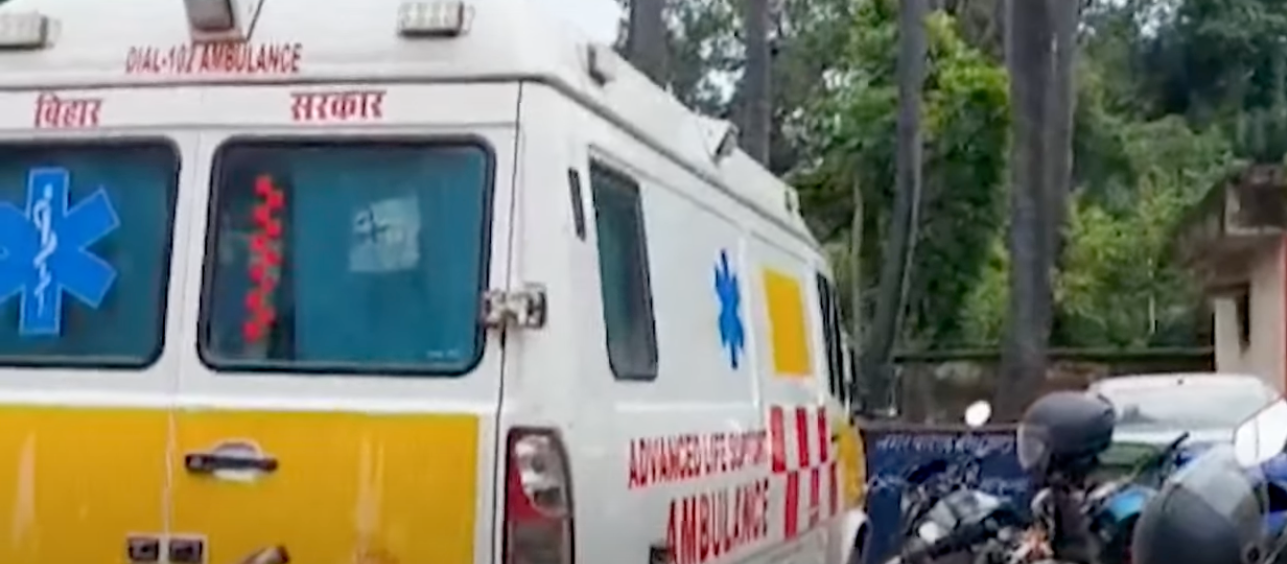A horrifying case of sexual assault has emerged from Gaya district, Bihar, where a female Home Guard aspirant was allegedly gang raped in a moving ambulance while being transported to a hospital. The incident occurred on July 24, 2025, during a Home Guard recruitment drive at the BMP (Bihar Military Police) ground in Bodh Gaya.
What Happened?
According to police and medical reports, the woman had fainted during the physical endurance test held as part of the state’s Home Guard recruitment process. She was then placed in an ambulance to be taken to a nearby hospital. It was inside this vehicle, while unconscious, that she was allegedly gang raped by the ambulance driver and technician.
Who Are the Accused?
The accused have been identified as:
- Viney Kumar – the ambulance driver
- Ajit Kumar – a medical technician
Both individuals were arrested shortly after the complaint and underwent initial police interrogation. Authorities later confirmed that medical examination of the survivor indicated evidence of rape. The Bodh Gaya police station has since launched a formal criminal investigation.
Where Did the Incident Take Place?
- Location: BMP (Bihar Military Police) grounds, Bodh Gaya, Gaya district, Bihar
- Inside the Ambulance: While the vehicle was en route to a government hospital
- Context: During an official Home Guard recruitment drive involving thousands of candidates
When Did It Happen?
- Date: July 24, 2025
- Time: Morning hours, during the physical test stage of the recruitment process
Why Is It Alarming?
This incident is particularly shocking because it occurred:
- During an official state recruitment event
- Inside a government-assigned emergency vehicle
- While the victim was unconscious and in need of medical help
The incident raises serious questions about protocol, supervision, and safety during public service recruitment events in Bihar.
How Did Authorities Respond?
- The Gaya district police immediately recorded the woman's statement after she regained consciousness and reported the assault.
- The medical team confirmed sexual assault, prompting the arrest of both the driver and technician.
- Investigation is ongoing, with authorities reviewing CCTV footage and call records.
- The accused remain in custody, and their interrogation continues.
Political Fallout
The incident has quickly taken on political dimensions in Bihar, a state already under scrutiny for rising crime.
Chirag Paswan, Union Minister and President of the Lok Janshakti Party (Ram Vilas), strongly condemned the Nitish Kumar-led state government:
“This is not an isolated case. Crimes like rape, loot, murder, and kidnapping are becoming routine in Bihar. The administration has failed. This government is bowing down before criminals.”
Paswan’s statement referred not only to this incident but also recent violent crimes, including a shootout inside a Patna hospital earlier this week.
On the other hand, Jitan Ram Manjhi, Union Minister and local MP from Bodh Gaya, defended the state government:
“Bihar is not what it was before 2005. Law and order have improved. The High Court has not referred to the current administration as ‘Jungle Raj,’ which says a lot. Criticism from inexperienced politicians should be taken with caution.”
Summary Table
| Key Detail | Information |
|---|---|
| Date of Incident | July 24, 2025 |
| Location | Bodh Gaya, Gaya District, Bihar |
| Victim | Female candidate for Home Guard recruitment |
| Accused | Viney Kumar (Driver), Ajit Kumar (Technician) |
| Crime | Alleged gang rape inside a moving ambulance |
| Status | Accused arrested; medical test confirmed rape |
| Political Reaction | Chirag Paswan blames state govt; Manjhi defends law and order improvements |
| Broader Context | Follows a recent hospital shootout; concerns over Bihar’s public safety |
What This Means
This case has once again brought Bihar’s law and order situation into question, especially as the state heads toward elections. It underscores not just the brutality of the act, but the failure of systems designed to protect vulnerable citizens during state-run activities. With both state and central leaders trading blame, the larger issue remains: how do such crimes continue to happen in public, supervised spaces?


